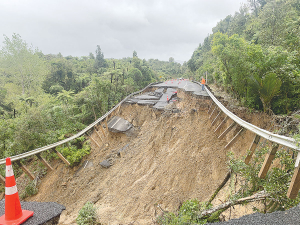OPINION: As pointed out in our review of the year, 2023 has been one of extremes in almost every way – from weather to costs.
While everyone has been affected by the cost of living crisis, rising on-farm costs – fertiliser, regulations, inflation and interest rates – put significant financial pressure on farmers. This had a knock-on effect of reducing the money farmers spend locally and nationally, significantly impacting the economy.
We also saw the impact of severe weather hitting farmers hard – particularly on the North Island’s East Coast. Within the span of a month, Cyclones Hale and Gabrielle cause unprecedented damage to the North Island.
Unfortunately, this region has experienced terrible weather all year. Many farmers who’ve just completed repairs of infrastructure on their properties, damaged by Cyclone Gabrielle and subsequent rain storms, have found this work destroyed again by rain in the past couple of weeks.
As Gisborne-based farm consultant Peter Andrew says, it’s been a tough situation for many.
This has been borne out by a series of farmer surveys throughout the year showing farmer confidence at record lows. A combination of bad weather, poor commodity prices, increasing costs and bad regulation has led to this low farmer confidence.
Despite the tough year, there have been some high points, including the new FTA with the UK, removing tariffs on exported goods either immediately or over a 15 year period. This is one the best outcomes of a trade deal that New Zealand has ever reached.
2023 also saw Emma Poole become the first woman to win Young Farmer of the Year, highlighting the growing and important part women play in our rural sector.
For many in the farming sector the outcome of the general election, which saw Labour voted out of office after six years in power, will be viewed as positive. The new coalition Government’s focus of appointing four ministers to roles in the agriculture and rural sector bodes well. Of course, the proof of the pudding will be in the eating.
Few in the sector will lament the end of 2023. Now we all can look forward to the challenges and opportunities the new year holds.



















